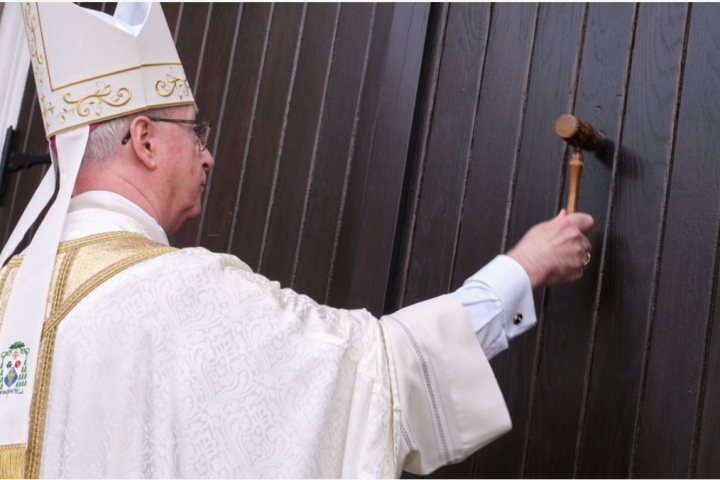Catholic and anti-euthanasia observers across Canada are welcoming the federal government’s decision to pause the introduction of assisted dying for individuals suffering from mental illness, but expressing dismay that it still intends to expand access in the future.
Vancouver Archbishop J. Michael Miller said he was disappointed by an announcement by federal Health Minister Mark Holland that the government would extend the deadline for making euthanasia available for individuals whose sole medical condition is mental illness.
Holland said on Jan. 29 that more time is needed to prepare for the move but told media the implementation is only being delayed. Earlier in the day, Parliament’s Special Joint Committee on Medical Assistance in Dying recommended delaying the expansion of euthanasia for mental disorders for a year.
The committee said Canada is unprepared for the measure and recommended postponing it “until it can be safely and adequately provided.”
On Feb. 1, the government introduced legislation to delay the expansion of MAiD for mental illness by three years, freeing the Liberal government from having to deal with the issue before the next federal election.

Archbishop Miller welcomed the Jan. 29 decision to delay the expansion but not the the minister’s indication that he plans to proceed. He said the government had already delayed the measure last year to allow more time to prepare for it.
“Now, it’s admitting there still hasn’t been enough preparation,” the Archbishop said. “There will never be enough preparation for taking the lives of individuals suffering from mental illness, and Canadians have repeatedly said they want to see improved mental health care for mental illness, not death.”
Echoing the Archbishop’s observation was Rebecca Vachon of think tank Cardus, who, although pleased that both the joint committee and the health minister were aligned on delaying the expansion of MAiD, said “an indefinite pause” is needed.
“As Cardus indicated in its own brief to the committee, not only are there inherent problems with reporting and oversight in the current provision of euthanasia, further expansion would be irresponsible given the existing barriers and gaps in mental health care,” she said.

A fall 2023 poll by the Angus Reid Institute and Cardus found only 28 per cent of Canadian supported the expansion, while 82 said any expansion should be conditional on improved mental health care.
Vachon said the government has to address current issues with euthanasia. “The government’s priority should be measures that help Canadians live with dignity, including ensuring universally available, high-quality palliative care, as well as addressing needs like housing and support for those with physical disabilities and mental disorders.
Phil Horgan, lawyer and special counsel to the Catholic Civil Rights League, questioned the government’s language in announcing the delay.
“The joint committee and the minister commented on the ‘system’ not being ready for the proposed expansion. We hope that after 57,000 deaths in seven years this legislation be recognized as an unbearable and grisly expansion. The ‘system’ has gone far beyond anything contemplated by our Supreme Court. Perhaps some humility is in order.”
Groups battling the federal government’s expansion of assisted suicide to the mentally ill say the delay announced Jan. 29 is no cause to claim victory, and a top health law expert warns grimly it’s the unelected Senate that might force Canadians to accept medical killing of the mentally ill.
Trudo Lemmens, a professor in health law at the University of Toronto and one of the legal experts invited to present to Parliament’s special joint committee on MAiD, cautioned that “zealous” individual senators could act even if the Trudeau government loses its political appetite for the fight over MAiD expansion.
“We will have to see how the Senate reacts since some senators have shown a remarkably zealous commitment to expansion, and may try to block at the Senate level a law implementing the (joint committee’s) recommendations,” said Lemmens.
An advocate for Indigenous people opposed to pushing MAiD further emphasizes the fight is far from won just because of a pause in the legislative action.

“It’s not like a win or anything,” Neil Belanger, director of the British Columbia Aboriginal Network on Disability Society (BCANDS), said. “If it’s shut down for two years, you’ll have those pro-MAID groups working for two years.”
Belanger warned that advocates for doctor-delivered death can be counted on to unleash a full-court public relations press aimed at pressuring Ottawa to proceed with the now-paused legal expansion.
“These guys will take whatever time they get, and they’ll be planning a better strategy,” he predicted. “They’ll do their PR work, and they’ll hope that it’s out of sight, out of mind for people. And largely it will be.”
Hundreds of briefs submitted to the committee reveal strong arguments for a permanent pause to the inclusion of mental illness as grounds for MAiD.
Lemmens, along with two other legal experts, noted in their brief that “there is no positive ‘right to MAiD’ pursuant to permissive federal criminal law.” The National Association of Catholic Nurses Canada wrote that “no attempts at ‘readiness’ can overcome basic problems with the concept.”
A new Toronto Star investigation says Canada is outpacing every other country in the world in the speed at which euthanasia is growing. In the past two years, more people have died through Canada’s MAiD regime than in any other nation in the world, the Toronto Star research found.
Canadian Catholic News with files from Anna Farrow
Lawyers hope to ‘rein in’ law group’s MAiD advocacy
By Quinton Amundson
Christian lawyer Lia Milousis hopes a votable resolution she and colleague Kerri Froc have submitted to the Canadian Bar Association will deliver an influential signal that further expansion of MAiD should be abandoned entirely.
Milousis and Froc’s motion calls on the bar association, which represents over 38,000 lawyers, judges, notaries, law teachers and students, to execute three actions: withdraw prior statements supporting MAiD for those whose only underlying medical condition is a psychiatric condition; urge the federal government not to proceed with MAiD for people solely living with a mental illness unless and until there is a reliable method to determine if such conditions are irremediable; and implore federal, provincial and territorial organizations to prioritize advancing, developing and funding mental health support.
Milousis said the motion, to be presented at the bar association’s annual general meeting on Feb. 8, would essentially “correct a misinterpretation” of a position adopted at the 2016 annual general meeting in the aftermath of the Supreme Court decision that shaped Canada’s original MAiD law Bill C-14. At that time, members agreed that a person who otherwise qualified for euthanasia — having a grievous, irremediable medical condition and reasonable foreseeability of natural death — should not be barred from MAiD because they also had a psychiatric condition.

“I struggle to think that members who voted in 2016 were voting with individuals whose only underlying medical condition was mental illness in mind,” said Milousis. “Really, this was about saying if you have terminal cancer and you would otherwise qualify for medical assistance in dying and you also happen to have an anxiety order or depression, that depression should not prevent you from proceeding with this decision…”
Milousis said the way the resolution has since been interpreted “has been a source of deep concern for me and many of my colleagues.”
She said MAiD advocates in the bar association have increasingly made submissions in support of including mental illness to qualify for euthanasia. “Some of my colleagues and I both believe this is contrary to the Carter decision and outside the scope of the resolution.”
The Carter decision is the 2015 Supreme Court of Canada judgment that Criminal Code prohibitions against physician-assisted suicide were unconstitutional.
The authors of the 2024 resolution support their position by citing a 2018 Council of Canadian Academies report that found there is no medical consensus regarding the irremediability of psychiatric conditions.
Another finding in the Council of Canadian Academies document cited by Milousis and Froc is that marginalized populations, including women, Indigenous communities, LGBT individuals, and youth, “experience or are at risk of experiencing mental disorders at disproportionate rates.”
They argue, “permitting medical assistance in dying for those whose sole underlying medical condition is a psychiatric condition would have a disproportionate, gendered impact and risks violating section 15 of the (Canadian Charter of Rights and Freedom). Section 15 of the Charter declares, ‘Every individual is equal before and under the law and has the right to the equal protection and equal benefit of the law without discrimination and, in particular, without discrimination based on race, national or ethnic origin, colour, religion, sex, age or mental or physical disability.’ “
“The solution that these (marginalized) communities have repeatedly asked for are increased mental health supports” and “additional funding to help these individuals,” Milousis said, but “in the midst of that cry and desire, the government is saying, ‘well, we don’t have those supports available, but we will allow you to access medical assistance in dying.’
“I find that deeply concerning and disrespectful of what folks in these communities have asked for.”
Milousis and Froc are on the CBA’s Constitutional and Human Rights Section’s executive team, which already voted to endorse the resolution.
“The CBA has gone too far in their advocacy, and we need to rein things back in on this issue and focus on what the Supreme Court said in (the Carter decision),” Milousis said.
Canadian Catholic News








